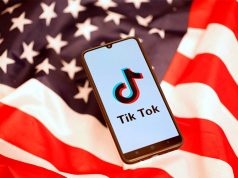
Former Miss Universe titleholder Pia Wurtzbach reportedly removed the series of emojis from her TikTok bio after a social media user called her a “jejemon,” a Filipino slang term considered an insult.
A TikTok user commented in one of the beauty queen’s videos where she featured questions that she gets asked while dancing.
“MISS MA’AM BAKIT NAWALA ULIT ‘YUNG EMOTICONS SA BIO MO?!!” the user asked in the comments section.
The 64th Miss Universe winner gamely answered with a crying face emoji: “Kasi napagkamalan ako na jejemon.”
Her answer has earned more than 8,000 likes so far.
As of this writing, Pia’s bio now reads:
Host, Advocate, Entrepreneur (red heart emoji)
Miss Universe 2015 from the Philippines (Philippine flag emoji)

The exchange caught the local online community’s attention, with some sharing it on other platforms like Facebook.
Facebook user Kzephyr Silvenia shared the incident on the group “MONARQUIA DE SILVENIA,” which has since earned a whopping number of 45,000 laughing reactions and 25,000 shares.

A user-suggested entry in the Collins Dictionary website defines the term “jejemon” as “a term used to refer to people, especially teenagers, who is [sic] fond of using symbols and unnecessary characters while texting messages.”
A feature originally published in Agence France-Presse notes that the term “jejemon” is derived from the word “jeje,” which is a substitute for “hehe,” an SMS term for laughter.
The term “mon,” meanwhile, is a reference to the popular Japanese anime of trainable monsters called “Pokemon.”
The feature said that jejemons emerged in the Philippines in 2009 as young people attempted to shorten text messages on mobile phones, back when smartphones were nonexistent.
“It then morphed into a unique language that spawned new words and phrases by deliberately stringing together misspelled words without syntax and liberally sprinkling them with punctuation marks. And the initial idea of tighter texting got lost as many ‘words’ became longer than the originals,” it said.









